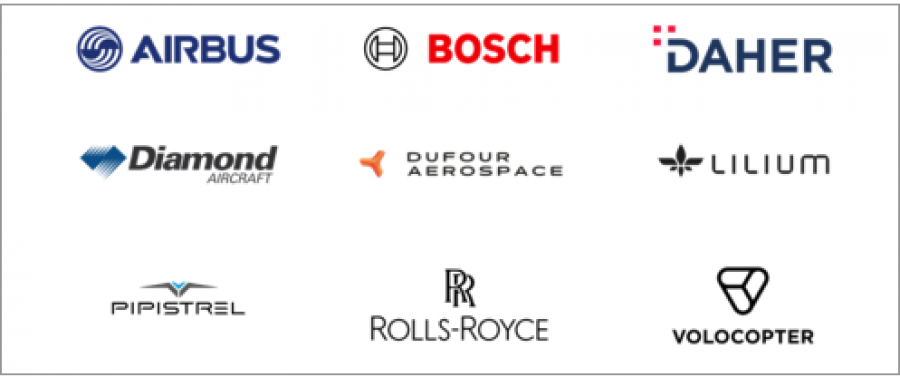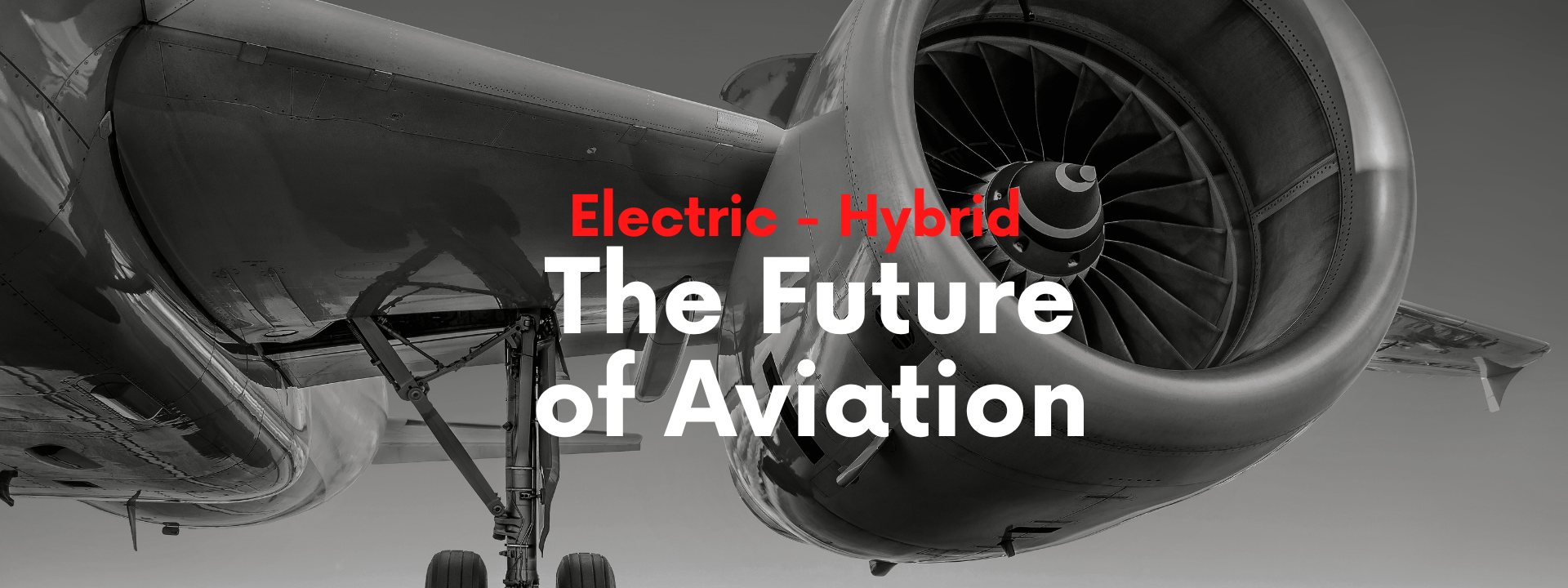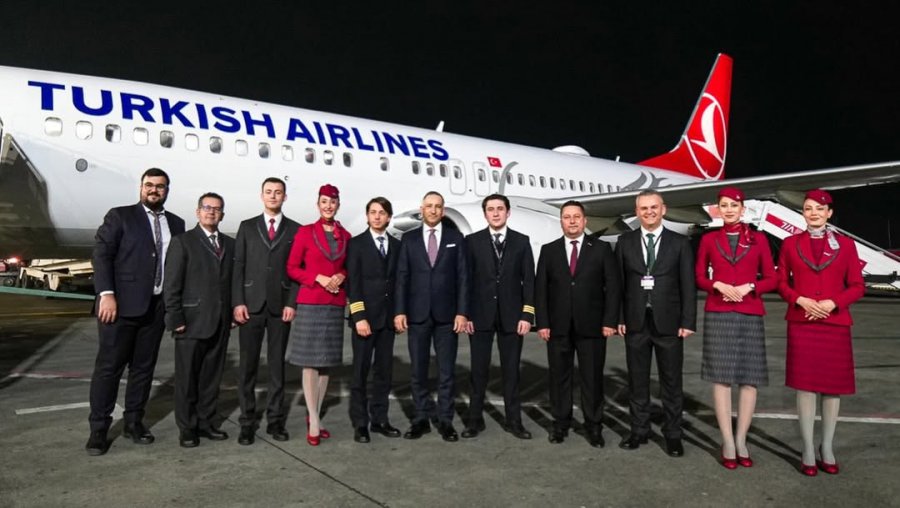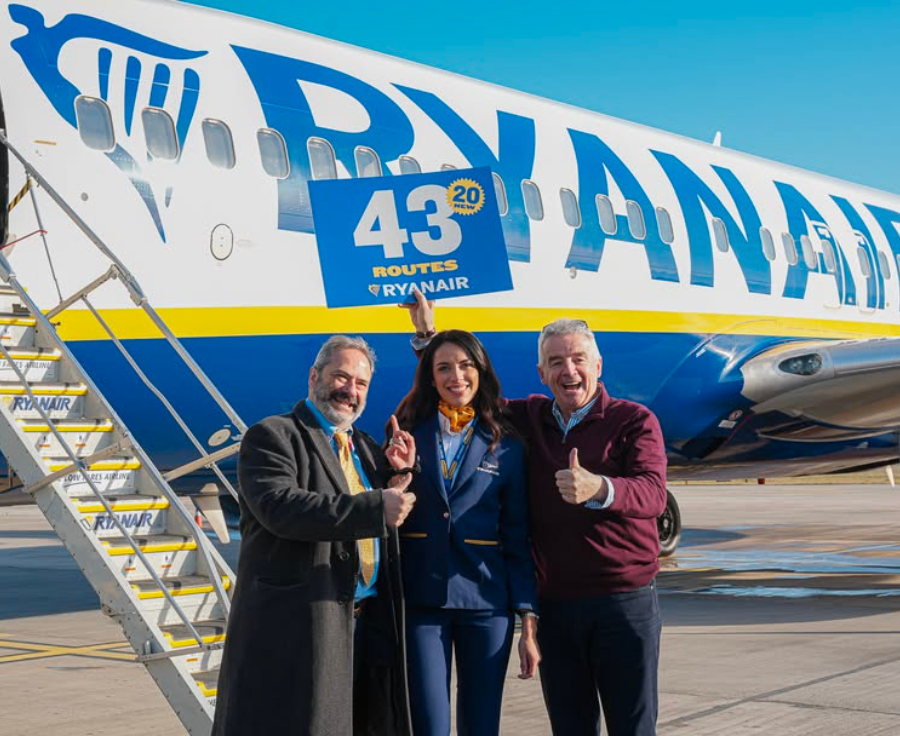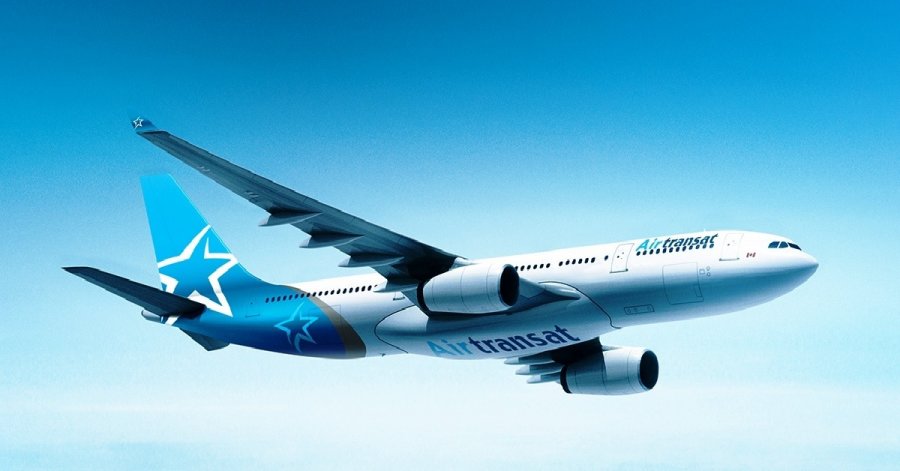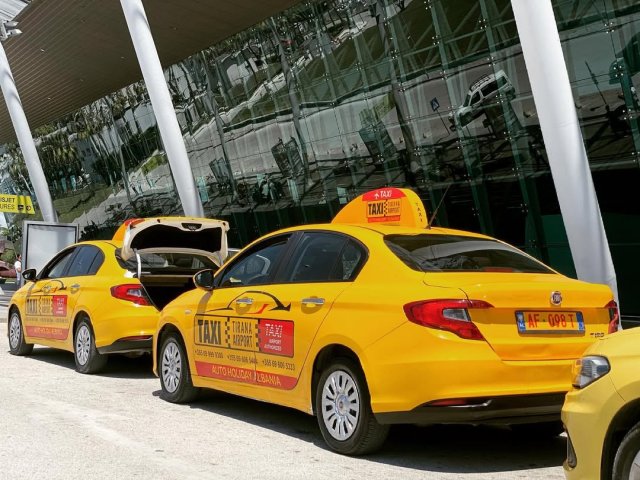Electric & Hybrid : The Future of Aviation
What Drives Electrification?
Aviation has come a long way since the early days of mechanical systems dominating every aspect of an aircraft. Initially, small batteries were integrated into onboard systems within the flight deck, serving as backup power sources and supporting auxiliary functions. As technology advanced, particularly in the automotive industry, the potential for using batteries in propulsion systems became evident. Today, the maturation of battery technology has reached a point where it can power entire aircraft, leading to a new era of electric and hybrid-electric propulsion systems.
What Technology Is Involved?
The shift towards electrification in aviation involves a variety of advanced technologies. At the heart of this transformation are powerful batteries capable of delivering the necessary energy for propulsion, as well as sophisticated electric motors that convert this energy into thrust. In addition, the electrification extends to onboard hydraulic and pneumatic systems that traditionally relied on engine power. These include critical components such as slats, flaps, stabilizers, environmental control systems, and de-icing systems. By transitioning these systems to electric power, aircraft can achieve greater efficiency, reduce weight, and simplify maintenance processes.
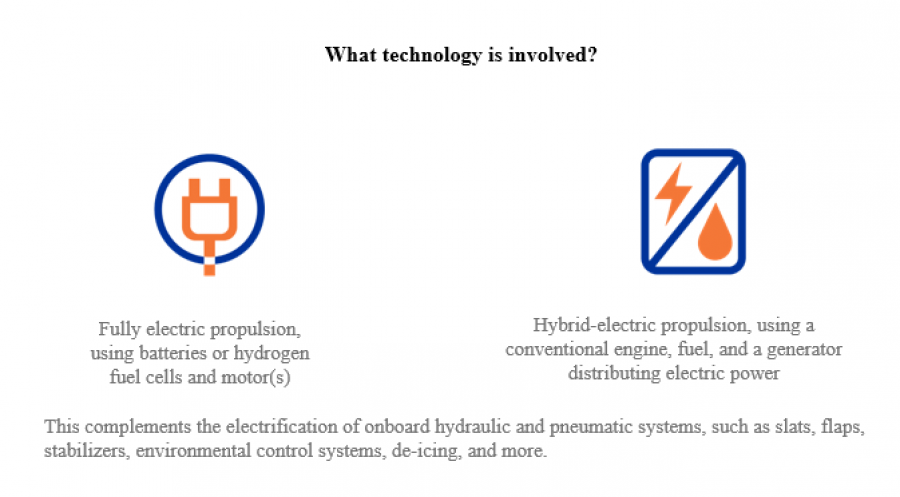
What Are the Advantages of Electric & Hybrid ?
The benefits of electric and hybrid-electric propulsion are numerous and impactful. Firstly, these systems are significantly more environmentally friendly than conventional jet engines, reducing carbon emissions and noise pollution. Electric propulsion also offers greater efficiency, as electric motors are more efficient in converting energy into motion compared to internal combustion engines. This results in lower operating costs for airlines, which can be passed on to passengers in the form of lower fares. Furthermore, the reduced number of moving parts in electric propulsion systems leads to lower maintenance requirements, increasing the reliability and longevity of aircraft.
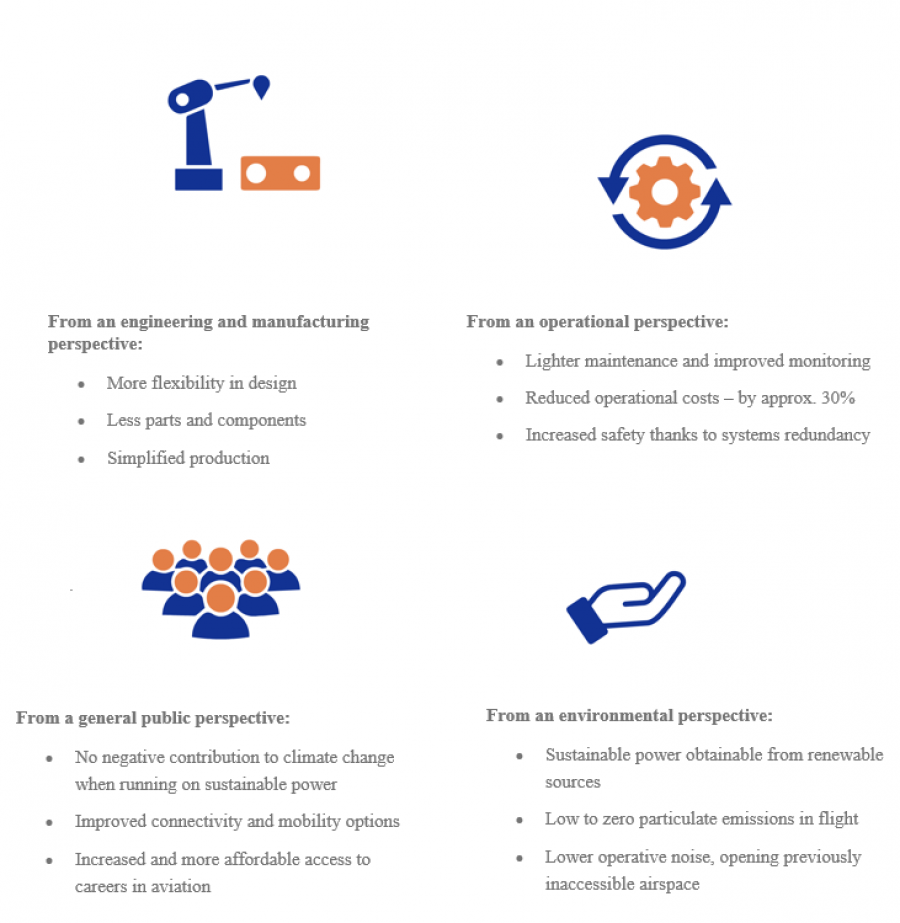
Which European Manufacturers Are Developing Electric Aircraft or Propulsion Today?
Several European manufacturers are at the forefront of developing electric aircraft and propulsion systems. Airbus is a leading player in this field, with projects such as the E-Fan X, a hybrid-electric aircraft designed to test and mature the technology. Rolls-Royce, known for its advanced jet engines, is also investing heavily in electric propulsion, developing cutting-edge electric and hybrid-electric systems for future aircraft. Another notable company is Pipistrel, a Slovenian manufacturer that has already produced and certified the first fully electric trainer aircraft, the Velis Electro. These manufacturers, among others, are driving the future of aviation towards a more sustainable and efficient horizon.
